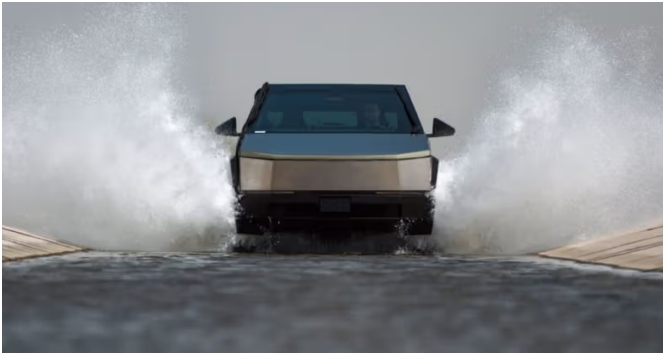In August 2024, what began as a late-night drive in Baytown, Texas, turned into a heartbreaking tragedy that’s now the subject of national headlines—and a potential landmark lawsuit.
Michael Sheehan, a Texas man driving a Tesla Cybertruck, was killed after his vehicle veered off the road, struck a culvert, and burst into flames. The lawsuit that followed didn’t just target the automaker Tesla; it’s now raising major questions about the safety of electric vehicles, the role of alcohol-serving establishments, and what rights families have when loved ones die in preventable crashes.
Filed in June 2025 in Harris County, this wrongful death suit may become one of the most closely watched product liability cases in the electric vehicle era.
What Happened? A Timeline of Events
Date of Crash: August 5, 2024
Location: Baytown, Texas
Victim: Michael Sheehan
Vehicle: Tesla Cybertruck (valued at $100,000+)
According to the lawsuit, Sheehan’s Cybertruck left the road and struck a culvert. The impact caused the vehicle to catch fire, trapping Sheehan inside. The crash forces were described as “survivable,” suggesting he might have lived—if he could have escaped the burning vehicle.
But escape wasn’t possible. The family’s lawsuit argues that once the Cybertruck lost power, its door mechanisms failed, rendering Sheehan unable to open the doors or windows.
Who’s Being Sued?
- Tesla, Inc. – The main defendant, accused of defective design and failing to warn consumers about the risks of being trapped in the Cybertruck during a power loss.
- A Mont Belvieu Bar – Named for allegedly overserving Sheehan and allowing him to leave intoxicated, violating Texas’ dram shop liability laws.
The Sheehan family is seeking over $1 million in damages.
The Legal Claims: More Than Just a Car Crash
This case combines two important areas of law:
- Product Liability: The lawsuit claims the Cybertruck was “defectively designed” and had no mechanical override to allow passengers to open doors during an electrical failure.
- Wrongful Death: Tesla is accused of creating conditions that made the crash fatal.
- Dram Shop Liability: The bar is being held partly responsible for allegedly serving alcohol to someone who was visibly intoxicated.
This marks the first known lawsuit involving a fatal Cybertruck crash. Given the Cybertruck’s high profile, legal experts say the case could set a precedent for future product safety litigation involving electric vehicles.
The Broader Context: Cybertruck Safety Concerns

The Cybertruck was launched in November 2023 to much fanfare, but it’s also drawn criticism for:
- Sharp, rigid exterior panels that pose increased injury risks to pedestrians
- High-voltage battery packs that can catch fire during crashes
- Door systems that depend entirely on electric power
Despite receiving a five-star safety rating from the National Highway Traffic Safety Administration (NHTSA) in early 2024, the vehicle has already been the subject of several recalls.
Most alarming, some reports say that the rate of fire fatalities in the Cybertruck’s first year is higher than the Ford Pinto—a vehicle once notorious for its explosive reputation.
Not Just One Incident: A Pattern Emerging?

Just months after Sheehan’s death, a similar incident occurred in California. Three college students died in a fiery Cybertruck crash, with only one survivor rescued by a witness. One of the victims, Krysta Tsukahara, was trapped in the back seat—her door wouldn’t open either.
Her family is now also suing the vehicle’s owner and the driver’s estate.
Roger Dreyer, the family’s attorney, told NBC Bay Area:
“You know she was trying desperately to get out. What went wrong with that vehicle that prevented her from being able to exit it?”
That same question lies at the heart of the Sheehan family’s lawsuit.
What Tesla Says
Tesla has not publicly responded to the Sheehan lawsuit. However, in previous legal filings, the automaker has argued that their vehicles meet all federal safety standards and that it’s the responsibility of drivers to operate them safely.
Legal observers expect Tesla to defend itself vigorously—especially given the Cybertruck’s symbolic importance to the company and its CEO, Elon Musk.
What Happens Next?
No trial date has been set, but legal proceedings in Harris County are underway. Meanwhile, attorneys and consumer advocates across the country are watching this case closely.
If Tesla is found liable, it could open the door to dozens of additional lawsuits and force automakers to rethink the role of power-dependent safety systems in electric vehicles.
Final Thoughts: Safety, Liability, and the Future of EVs
As the auto industry pushes further into electric and autonomous vehicles, lawsuits like Sheehan’s remind us that innovation must be paired with accountability. When new technologies fail—especially in life-or-death situations—consumers and families are increasingly turning to the courts.
This case could change how manufacturers design electric vehicles and influence future safety regulations. Most importantly, it’s a tragic reminder that human lives must come before futuristic design.
For More Stories Like This:
Visit www.americanlawreporter.com for daily updates on high-stakes lawsuits, product liability trends, and consumer safety litigation.

